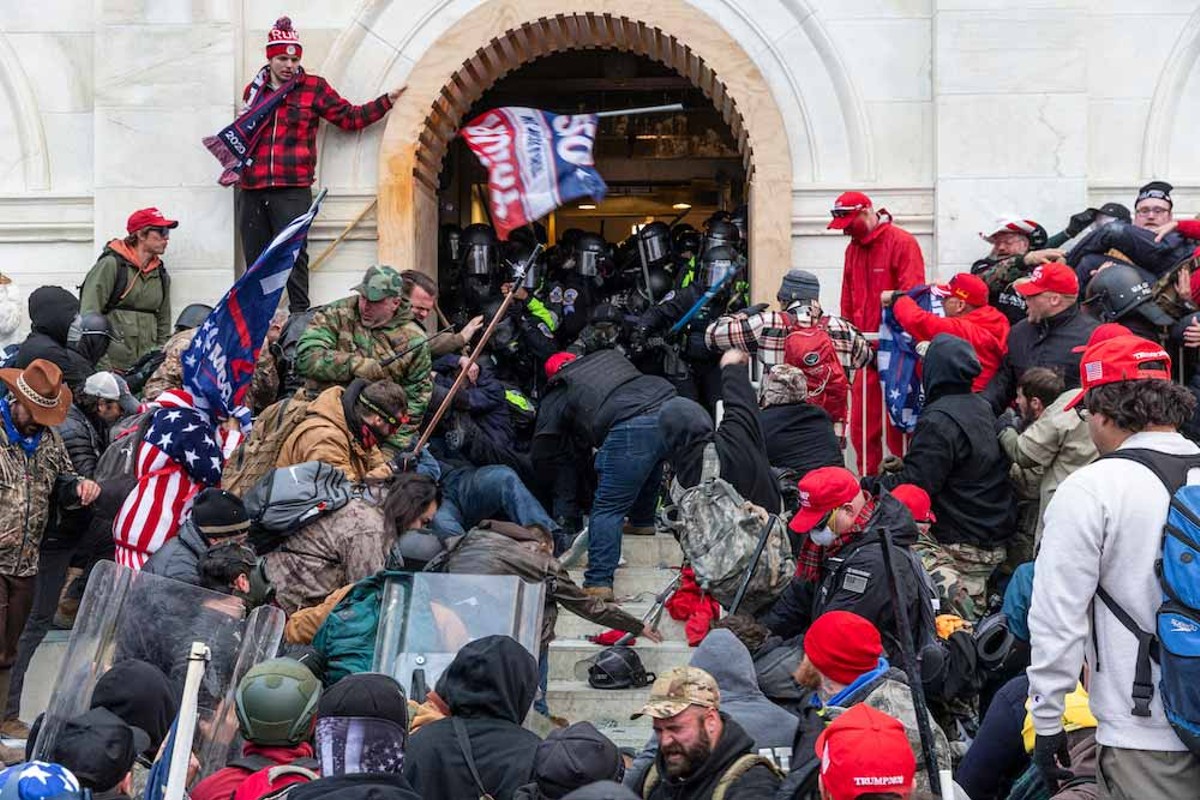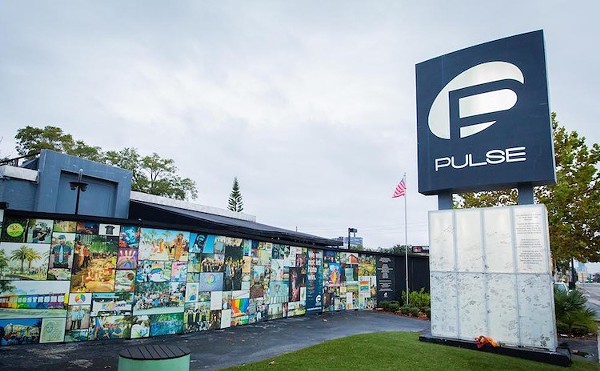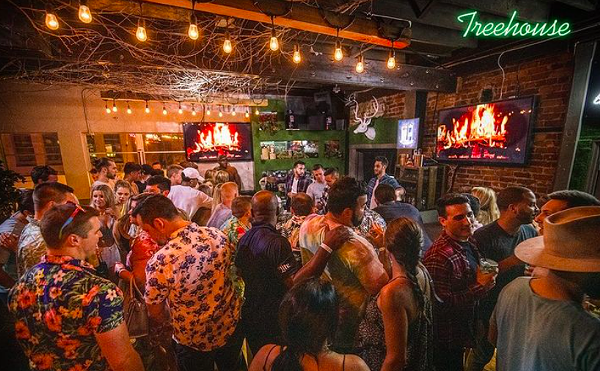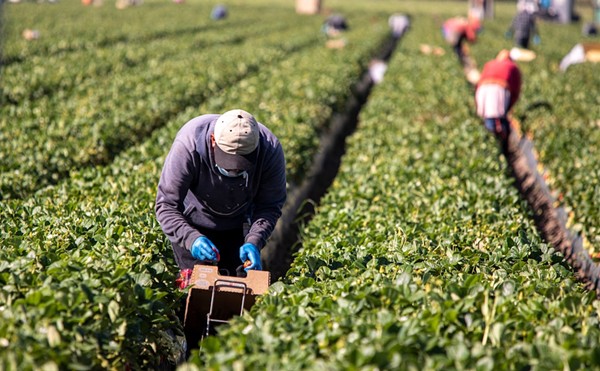The dystopian nightmare of 2020 concluded with a glimmer of hope. Donald Trump had been defeated. COVID vaccines were on the way. The economy was showing signs of life.
That fantasy didn’t last a week.
If anything, 2021 was a long, grueling extension of 2020. And by the looks of things, our democracy will likely be in even more precarious shape 52 weeks from now. (Sorry to harsh your mellow.) So for my final column of 2021-slash-my first column of 2022, I’ve compiled the 21 most important political stories of this godforsaken year, all of whose repercussions will be felt well into the future.
1. Jan. 6
This actually happened: The president lost his re-election bid by more than 7 million votes but declared that the election was rigged. His demonstrably false claims were trumpeted by media propagandists who spun increasingly fantastic yarns about voting machine companies and hackers and something to do with Venezuela. He pressured state officials to “find” votes for him, while his campaign lawyers and administration officials drummed up plans for the vice president to unilaterally overturn the election results.
When the vice president refused, the president riled up an angry mob. “If Mike Pence does the right thing, we win the election,” he told them. When they marched to the Capitol, breached security and rampaged the halls of Congress, the president refused to call them off. Five people died.
In Congress, more than half of the president’s party still voted to block Joe Biden’s victory.
2. The second impeachment
No Trump official has been held accountable for the attempted coup, and the only Republicans who’ve paid a political price were those who condemned Trump. GOP leaders who tepidly criticized Trump in the insurrection’s aftermath backpedaled the second they realized the base was on his side.
The overwhelming majority of Republicans found a pretense for voting against his impeachment. Only 10 representatives and seven senators went against the party’s leader. They’ve been viciously attacked ever since.
3. The voting rights crackdown
The Big Lie offered Republican legislatures a pretext to “protect” the “integrity” of elections — in other words, to make it harder for people of color and urbanites to vote.
More than once this year, the House of Representatives has passed legislation to protect voting rights: The For the People Act would ban gerrymandering, automatically register voters and expand early voting. The John R. Lewis Voting Rights Advancement Act would restore key provisions of the Voting Rights Act. Both have stalled in the Senate, victims of a procedural anachronism that allows the minority party to effectively veto the majority’s agenda.
4. The filibuster
The absurdity of the filibuster came into sharp relief this year, exacerbating as it did the antidemocratic nature of the U.S. Senate itself. By allowing it to remain in place, Democrats have placed themselves in a straitjacket. The results: no voting rights legislation. No immigration reform. No assault weapons ban. No law to codify abortion rights. A watered-down infrastructure bill. And because of the filibuster, Dems had to stuff most of their priorities into a massive, complicated reconciliation package that is — charitably speaking — now on life support.
5. The American Rescue Plan
Democrats circumvented the filibuster to pass the American Rescue Plan Act, a pandemic relief bill that pumped $1.9 trillion into the economy while teasing the White House’s ambitious domestic agenda, including expanded subsidies for health insurance plans under the Affordable Care Act and new child tax credits.
Studies say the child tax credits will lift as many as 4 million kids out of poverty, and the expanded Obamacare subsidies ensured that almost everyone could get a quality, low-cost health plan. Both were pitched as “emergency” measures with the *wink-wink* expectation that they would continue into perpetuity.
Maybe not. The child tax credits expire this month, and the health care provisions end next year. Legislation to keep them going has faltered in the Senate.
6. Build Back Better
The hang-up isn’t the filibuster — not directly — but rather Democrats’ Manichema problem: Sens. Joe Manchin of West Virginia and Kyrsten Sinema of Arizona. One or both of them have publicly objected to the Build Back Better package’s overall price tag, raising taxes on the wealthy, letting Medicare negotiate drug prices, addressing climate change and most recently, the bill’s “temporary” extension of child tax credits. (In private, Manchin — who drives a Maserati, is deeply invested in coal and whose daughter made a fortune by gouging allergy sufferers on lifesaving EpiPens — reportedly told colleagues he thought poor people would use child tax credits to buy drugs and workers would abuse paid sick leave.)
For months, Democrats accommodated their demands, but Manchin and Sinema kept moving the goalposts. Then, days after presenting the White House with a compromise he said he’d support, Manchin announced on Fox News that he wouldn’t vote for Build Back Better. The next morning, Goldman Sachs slashed its economic growth forecasts for the first half of 2022.
7. The infrastructure deal
So Build Back Better is dead, at least for now — a crushing blow to progressive ambitions. But Biden did accomplish something in his first year that Trump failed to do in four: pass a bipartisan infrastructure deal. It was a big deal — if not everything the White House wanted. To win enough Republicans to overcome a filibuster, Democrats cut their original proposal in half, which meant excising most of the climate provisions.
To get House progressives on board, however, Biden promised to address the climate crisis with Build Back Better. You see how that’s worked out.
8. The heat dome
In late June and early July, an extreme heatwave baked the Pacific Northwest, setting record temperatures in Portland (116° F), Salem (117°), Seattle (108°), Spokane (109°) and Canada (121°). More than 1,000 people died.
This wasn’t the only extraordinary weather event this year. There were wildfires in California and an ice storm in Texas. In mid-December, tornadoes ravaged the Midwest, killing at least 88. The heat dome wouldn’t have been possible without climate change, scientists say. While it’s harder to link other specific disasters to carbon pollution, we know that the hotter the planet gets, the more often they’ll occur. Since climate policy is now dictated by a coal millionaire, we should probably prepare for a *Mad Max* future.
9. The Afghanistan debacle
The collapse of Kabul had many fathers. But in the first draft of history, the blame fell squarely on Joe Biden, whose White House grossly overestimated the Afghan army’s strength. For more than a week in August, scenes of chaos filled TV screens as the U.S. troops scrambled to withdraw troops and rescue allies and desperate Afghans tried to find a way out. An Islamic State suicide bomber killed 13 American soldiers and dozens of civilians outside the Kabul airport. The U.S. retaliated by drone-striking civilians.
Republicans who’d backed Donald Trump’s agreement to release thousands of Taliban prisoners and withdraw U.S. forces from Afghanistan accused Biden of “abandon[ing] the global stage,” suggested he be removed via the 25th Amendment and, in Trump’s case, said he should “resign in disgrace.” Biden’s popularity took a hit. Before Kabul collapsed in mid-August, Biden polled above 50%. He’s been underwater ever since.
10. The Delta variant
The Delta variant was perhaps the main reason Biden failed to regain his political footing. The deadly wave of COVID-19 cases plowed through largely unvaccinated communities this summer, devastating red states — and counties — that rejected vaccines and abandoned or fought basic precautions. Republicans slammed Biden for failing to bring the pandemic to heel as promised — never mind that they fighting mask and vaccine mandates — and economic growth slowed to a trickle.
11. Inflation
The short version of the very complicated inflation story: During the pandemic, consumers began buying a *lot* of stuff online. Retailers couldn’t find enough delivery drivers, so they paid more generous salaries and passed those costs along to consumers. They also stored more containers before delivery and passed along those costs, too. Meanwhile, increasing sales volume combined with worker shortages to create logjams at ports and transportation hubs, slowing deliveries and forcing retailers to carry excess inventory, which, again, raised prices.
So inflation is linked to a global supply chain crisis, which is linked to labor shortages. Labor shortages are likewise a multifaceted issue, but in the United States, there seem to be three primary culprits: a declining birth rate, immigration restrictions and, most importantly, millions of Americans who voluntarily left the workforce or took early retirement during the pandemic.
None of this has a quick fix, which means no matter how well the Dow performs or how much GDP grows, inflation will be a thorn in Biden’s side for at least another year.
12. Critical race theory
In the same way “cancel culture” became a universal response for any right-wing goober who faced consequences for saying or doing something gross or racist, “critical race theory” leaped from legal academia into a catch-all term for anything certain white people found discomforting.
In several states, Republican politicians raced to ban the teaching of “concepts” associated with critical race theory in classrooms. Parents’ groups tried to prohibit such apparently problematic books as *Ruby Bridges Goes to School: My True Story*. Wisconsin lawmakers sought to prohibit schools from using the words “colonization,” “multiculturalism” and “patriarchy.”
Because grievance never rests, the culture warriors have set their sights on school libraries that dare to carry books on race and gender. After that, there will be something else. Outrage is useful, and there will always be some new threat to rile up the base.
13. Ron DeSantis and authoritarianism as freedom
Few politicians have ginned up and exploited rage with as much aplomb as Florida Gov. Ron DeSantis, an enthusiastic would-be authoritarian who not only refused to impose COVID restrictions during the height of the Delta wave this summer but blocked local governments from doing so, banned private companies from requiring vaccines and threatened to cut off school funding if districts mandated masks.
At least 63,000 Floridians have died so DeSantis can boast about his state’s “freedom.”
He also barred transgender athletes from school sports, restricted absentee voting, cracked down on public protests, and required universities to collect databases of students’ and faculty members’ political views. Most recently, he proposed creating his own paramilitary force and announced legislation to allow people to sue schools or businesses whose diversity policies create a “hostile” environment — a payday for racists, if you will.
DeSantis is, of course, considered a top-tier candidate for the 2024 Republican presidential nomination should he win re-election in November.
14. Alden buys Tribune
Vulture capital firm Alden Global acquired Tribune Publishing in May, bringing its slash-and-burn profiteering to the *Orlando Sentinel, Chicago Tribune, Baltimore Sun*, and other journalistic institutions across the country. Whatever bare minimum those papers have scraped by on, it’s going to look like the glory days soon.
Gutting newspapers to their core has real-life effects on the communities they serve. The public is less informed and participates less in local government. Wrongs go undiscovered. Corruption flourishes. Democracy suffers.
15. The end of *Roe*
We knew this was coming the moment Mitch McConnell rushed Amy Coney Barrett onto the Supreme Court: During oral arguments in December, in a case that originated in Mississippi, the Court’s far-right majority signaled their intent to eviscerate the right to abortion. The only question is whether the Court will abandon its longstanding fetal viability threshold or junk *Roe v. Wade* altogether — death by a thousand paper cuts or death by an ax to the skull.
Either way, *Roe* is dead. If there’s any doubt, consider the mental gymnastics the Court’s conservatives went through to allow Texas’ antiabortion law — another affront to *Roe* — to stand. (Raise your hand if you think they’ll allow California to ban assault weapons using the legal trickery. Yeah, didn’t think so.) And if there’s any doubt that the Court’s conservatives are ideologically driven radicals, they’ll vanish this spring when the abortion ruling comes down.
That leaves a question for Democrats: Will they get over their tepidity about “politicizing” the judiciary and realize that it’s already happened, or will they keep getting steamrolled?
16. The homicide spike
George Floyd’s murder last year provoked a long-overdue reckoning, with cities questioning the way their police departments were funded and held accountable. About half of the country’s largest cities reduced their police budgets — often by relatively small amounts, and usually in the context of broader pandemic-related budget cuts. Cities and states also imposed measures to scrutinize law enforcement behavior and moderate use-of-force policies.
And then, as suddenly as police reform movement gathered momentum, that momentum collapsed. Some Democrats blamed Defund the Police activists for their unexpectedly poor showing in the 2020 elections. But the more immediate problem was the surge in homicides: a 30% increase in 2020, another 10% increase in 2021. It didn’t matter that the surge happened in cities that increased police funding the same as those that cut it, or that, other than homicides, violent crime rates have continued a decades-long downward trend. Police reform had to wait.
17. The killing of Andrew Brown Jr.
The morning after former Minneapolis Officer Derek Chauvin was convicted of murdering George Floyd, sheriff’s deputies in Elizabeth City, North Carolina, murdered Andrew Brown Jr., a 42-year-old Black man, shooting him five times from behind as he drove away. Except the district attorney in Pasquotank County tripped over himself to say Brown — who was unarmed — was using his car as a weapon and the deputies shot Brown in self-defense, so he wouldn’t prosecute them. He then presented body-cam footage that, well, showed the exact opposite.
Brown’s family has filed a $30 million lawsuit, and the FBI is reportedly investigating whether the sheriff’s office violated Brown’s rights by gunning him down from behind. Whatever comes of those things, the fact remains that the justice George Floyd received is the exception, not the rule.
18. Gerrymandering
A key component of the stalled For the People Act was an attempt to ban political gerrymandering, which could be the means by which Republicans seize control of the U.S. House in November even if the expected red wave fails to materialize. Or maybe not, if court fights over Republican-drawn districts in Ohio and North Carolina go the Democrats’ way and New York Dems pull off a hard-core gerrymander of their own.
The issue isn’t — or shouldn’t be — which party gerrymandering helps. It’s that thanks to technological advances, lawmakers can now select their voters with mathematical precision, rather than the other way around, and the results of most elections are foregone conclusions before the first ballot is cast. That’s no way to run a healthy democracy.
19. Student loan debt
On Feb. 1, Joe Biden — who promised to forgive at least $10,000 in student loan debt — will allow federal student loan payments to resume nearly two years after they paused under Donald Trump. That’s a hell of a message to campaign on.
By resuming the payments, the White House hopes to signal that the economy is back on solid ground. For borrowers, who collectively owe $1.6 trillion, that perception isn’t likely to be their No. 1 concern. Biden says he’d sign a bill to forgive student loan debt if Congress passed one, which it won’t. His Department of Education is still reviewing whether he has the authority to forgive debt unilaterally, which might be one way to mitigate the political damage with young voters.
20. The Trump investigations
A House committee is investigating the Jan. 6 insurrection — including White House officials’ role in coordinating and fomenting the attack — and Trump is suing to block the release of potentially damning records. New York is investigating Donald Trump’s business practices, and he’s suing to shut down that probe, too. A Georgia prosecutor is investigating whether Trump’s phone call to the secretary of state demanding that he “find” additional votes crossed a legal line. Trump is also facing lawsuits from Capitol Police officers and lawmakers over the Jan. 6 violence, and a defamation lawsuit stemming from sexual assault allegations.
Who knows what any of these will amount to, but they’ll keep Trump in the news. On the one hand, claims of martyrdom will only further endear him to his devotees. On the other, it’s hard to run a presidential campaign while fighting a felony rap.
21. The Omicron wave
We’ll end on the biggest question mark of 2022: How bad will the hyper-transmissible Omicron variant be? We know the wave is coming. We know it will tear through unvaccinated areas, though vaccinated people are still susceptible, especially those without boosters. But will it kneecap the economic recovery? Will it lead to new pandemic restrictions? Will it fill emergency rooms (or morgues) for weeks on end?
Or will it finally persuade the vaccine-resistant to get with the program?



















